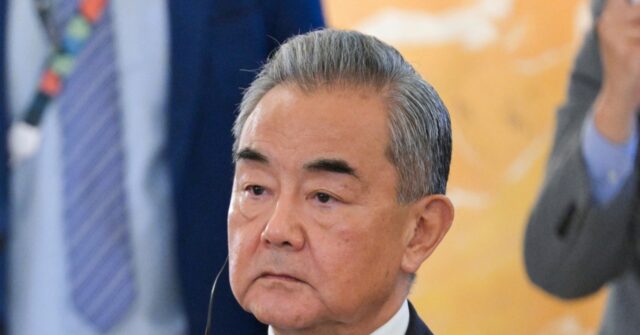In recent diplomatic developments, China’s Foreign Minister Wang Yi made significant calls to both Israel and Iran in the context of escalating tensions in the Middle East. According to the Chinese state-controlled media outlet Global Times, these discussions aimed to persuade both nations to avoid renewed conflict. The phone conversations reportedly took place back-to-back on a Monday, during which Wang adopted a firm stance in his dialogue with Israeli Foreign Minister Israel Katz. He urged an immediate end to what he described as a “humanitarian disaster” in Gaza, emphasizing that using violence in response to violence would not suffice in addressing the legitimate concerns of either side. This approach suggests China’s desire to position itself as a mediator, even as it has strong ties to Iran—a key player in the ongoing regional conflict.
In contrast, Wang’s conversation with Iranian Foreign Minister Seyyed Abbas Araghchi was markedly more conciliatory; he commended Iran for its engagement in what he termed “mediation diplomacy.” While lacking detailed exposition, Wang encouraged both parties to foster understanding. Since Hamas’s attacks on Israel on October 7, which resulted in approximately 1,200 casualties and numerous abductions, Iran has been openly supportive of Hamas, framing the situation as a pivotal moment in their struggle against Israeli statehood. The implications of such support underscore a complex geopolitical dynamic, wherein China navigates its alliances while also attempting to advocate for a cessation of hostilities.
Wang Yi’s demands for Israel included a call to halt its military operations in Gaza and to return to a “political path” through the establishment of a two-state solution—a concept that has historically aligned with Hamas’s objectives. This request from China indicates a predisposed inclination to advocate for Palestinian rights while simultaneously limiting Israel’s defensive actions. Interestingly, despite the nature of Wang’s appeal, the Global Times reported largely on Katz’s support for China’s stance on Taiwan, omitting critical exchanges regarding the implications of Hamas’s attack and Israel’s subsequent military response.
Katz, for his part, publicly detailed his defense of Israel’s position during their exchange, asserting that Iran represents a significant destabilizing force in the region and poses a global threat through its proxies, including Hamas. He characterized the onslaught of missile attacks from Iran against Israel as an event that any nation would reckon with. Additionally, Katz stressed the expectation for China to adopt a fair and balanced viewpoint on the conflict, thereby holding Iran accountable for its role in perpetuating violence.
In stark contrast, Wang’s tone during discussions with Iranian leadership appeared more supportive, emphasizing the need for continued Sino-Iranian relations and a collective commitment to communication and cooperation. While he did caution against engaging in “military adventures,” the overall disposition of the call seemed to endorse Iran’s aspirations in light of the tensions with Israel. These communications reflect China’s attempt to bolster its foothold in the Middle East amidst ongoing rivalries, as it seeks to be perceived as a peace broker while favoring its allies.
China has consistently attempted to enhance its status in the Middle East, recently taking steps through regional initiatives such as the BRICS coalition, which has expanded its membership to include Iran and other nations seeking to counter Western dominance. The Chinese government has previously hosted discussions aimed at unifying Palestinian factions, though these talks have seen limited success. Following the recent escalation in conflict, China hosted a pro-Hamas summit to condemn Israel’s military responses, reaffirming its alignment with Arab and Islamic entities. Thus, while Beijing’s diplomatic strategy appears to advocate for regional stability, its actions indicate a nuanced approach that shows more empathy towards Iran and its affiliates, rather than towards Israel’s security concerns.
Overall, the diplomatic exchanges led by Wang Yi underscore the complexity of Middle Eastern geopolitics, illustrating China’s ambitions in the region. The contrast between Wang’s messages to Israel and Iran signifies China’s balancing act of navigating alliances while promoting its own geopolitical interests. In the face of ongoing conflict, China’s calls for moderation and dialogue reflect a strategic framework that aligns with its long-term objectives of fostering influence and cultivating relations across a diverse set of actors in the Middle East.

